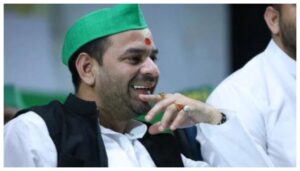
Patna: Bihar’s Tourism Minister, Raju Singh, has sparked a fresh debate over the state’s prohibition policy, stating that the liquor ban has led to economic losses, particularly affecting the hotel and film sectors. Speaking at a press conference in Patna on Sunday, Singh said he would soon raise the matter with Chief Minister Nitish Kumar, advocating for policy concessions similar to those in Gujarat.
“Both the hospitality and entertainment industries are facing challenges because of the current policy,” Singh said. “The government is taking this seriously, and discussions will be held to find a workable solution.”
The remarks have drawn strong criticism from the Rashtriya Janata Dal (RJD), with party spokesperson Ejaz Ahmed accusing Singh of undermining a “historic campaign”. Ahmed said, “Those who once took an oath to uphold the liquor ban are now attempting to dismantle it. This reveals a disturbing double standard within the Nitish-led administration.”
The liquor ban, introduced in April 2016 under the Mahagathbandhan coalition government, was widely publicised with mass mobilisation efforts including a human chain formation that entered the Guinness Book of World Records. The campaign was led in part by Tejashwi Yadav, who promoted the slogan: “We want books, not liquor; libraries, not bars.”
Ahmed further questioned whether Nitish Kumar endorsed Singh’s views, warning that BJP leaders seemed intent on reversing a significant social reform. Critics of the prohibition law have often highlighted unintended consequences, such as increased smuggling and the disproportionate incarceration of Dalits and other marginalised communities.
This is not the first time a member of the ruling alliance has questioned the ban. Union Minister Jitan Ram Manjhi previously argued for regulated alcohol sales, stating that prohibition had led to increased harassment of Dalits and backward classes, who constitute a majority of those arrested under the law.
Despite consistent criticism and calls for review, the Bihar government has maintained a strict stance on prohibition—though Singh’s comments indicate growing internal pressure for change.





